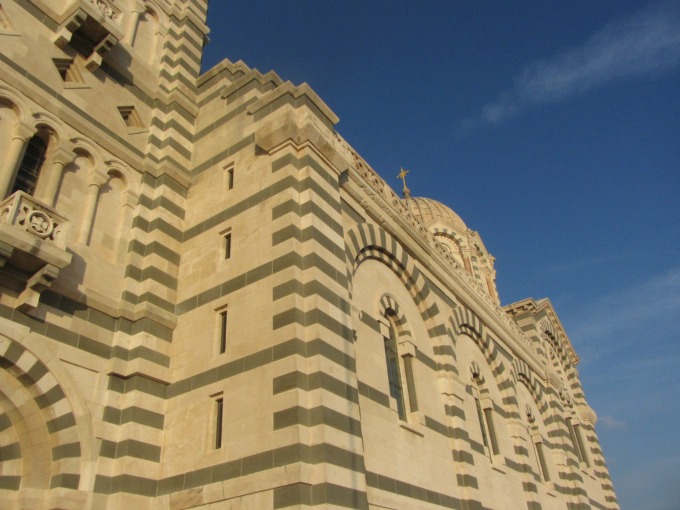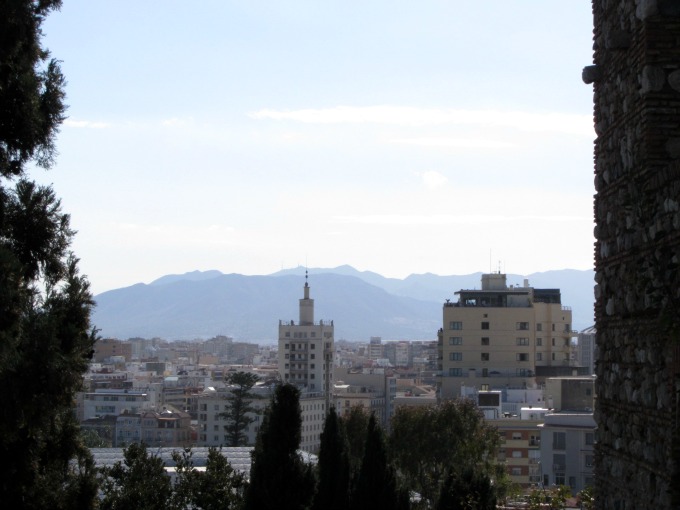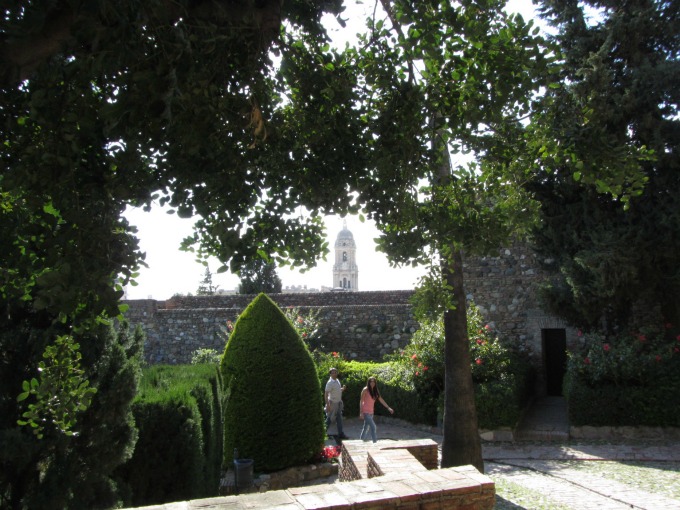Thursday, April 11, 2013
Wednesday, April 10, 2013
Rainy day in Marseille
It rained Saturday. All day. Despite that, we spent most of the day outside, wandering the city.
The Cathedral was definitely a lot different from the cathedrals that I've seen in Spain. There were electric lights, for one thing.
Of course we found the music.
Tuesday, April 9, 2013
Monday, April 8, 2013
Observations on the importance of travel preparation
This past weekend a friend and I went to France.
I don't speak French.
For some reason, it didn't occur to me that this would be a huge problem. I took French for 3 years ages ago, and made no effort to retain what I learned; in reality, I hated French for the entirety of those years. Still, I figured that if I reviewed a little before we left it wouldn't be too hard to get by. Plus, France is close to Spain, so some people probably would speak Spanish, and the internet said that most people in the town we went to spoke English.
False. Barely anyone spoke English, and I didn't encounter any Spanish speakers at all. I guess I've been spoiled by the places that I have travelled; I've travelled quite a bit throughout Spain and a bit in Great Britain; even in Portugal everyone that we encountered spoke either English or Spanish.
I really don't want to perpetuate the stereotype of the stupid American who travels and expects to hear English everywhere, but I know that it was my own fault for making stupid mistakes when it came to preparing for this trip. So, it only makes sense that I think about the lesson that I learned!
How to prepare for a short trip to where you don't speak the language:
1. Prepare ahead of time. As in, not two hours before the flight. Give yourself enough time to actually retain some of the information you're looking up.
2. Listen to the phrases out loud. Being able to read a useful phrase, being able to say it, and being able to understand it when it is said to you are three completely different skills. Practice each of them before leaving.
3. If you write down useful questions, make sure to research possible answers. Being able to ask "Where am I?" is not very useful if you don't know basic directions.
4. Numbers. Similar to number 3, "How much" won't get you very far if you don't understand numbers.
5. Learn basic verbs. I didn't think to look up the infinitives of basic verbs that we use all the time here. If I went back I would be sure to know things like to be, to have, and to go, in addition to phrases.
6. Situational phrases. Airport parts, general signs, bathrooms. All important.
It seems like a lot of work to prepare to go somewhere where you don't know the language. Despite what I've just said, I actually did do some leg work ahead of time; most of it was only halfway useful, though. I think that this comes down to knowing what you need to be prepared. If I were to be going somewhere for more than a weekend I would probably invest in a pocket dictionary, and actually really make an effort to learn before hand. It would be worth the time and effort to not feel completely useless for days.
Thursday, April 4, 2013
Málaga: el Alcazar
In the middle of downtown Málaga there's what appears, from the ground, to be some sort of stone ruin. There's a brick path to follow to get in to it; this leads to an office where you have to pay to get in. We almost turned back, but I'm so glad that we didn't, for two reasons. First, admission was 60 cents with a student id. Second, we got to see what was probably the coolest structure that I've been in in Spain. Inside the alcazar we found beautiful gardins, balconies overlooking the city, and a palace. The path inside keeps going up and up, and from the top we could see all of Malaga to one side, and mountains and the sea to the other. It was gorgeous.
It was hot and sunny, but there was a cool sea breeze rolling in. All of Malaga smells incredible, from some sort of floral tree; it smelled even better inside the alcazar. As if things couldn't get any better, from the top of where we climbed to we could hear the music from the processions. Sure, I'll take a band concert from the top of a tower.
Málaga: Procession
A big part of Semana Santa anywhere in Spain is the Procession, when the town's Virgin statue is taken from the church and paraded around the town. From what we discussed in class it's usually a solemn event in the north; in the south, it's a festival. There were marching bands closing every procession, and street vendors selling roasted almonds and ice cream.
Subscribe to:
Posts (Atom)



















































